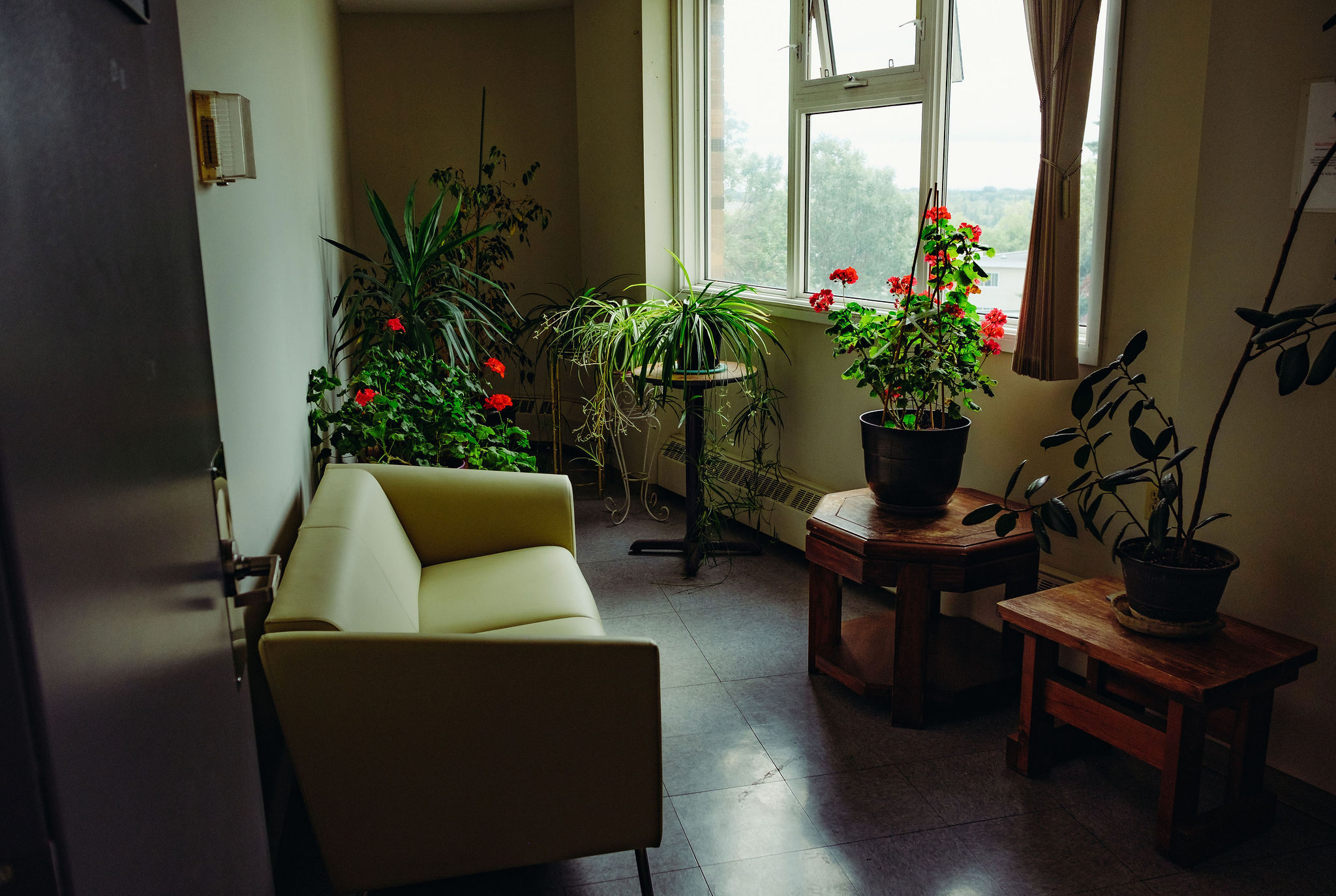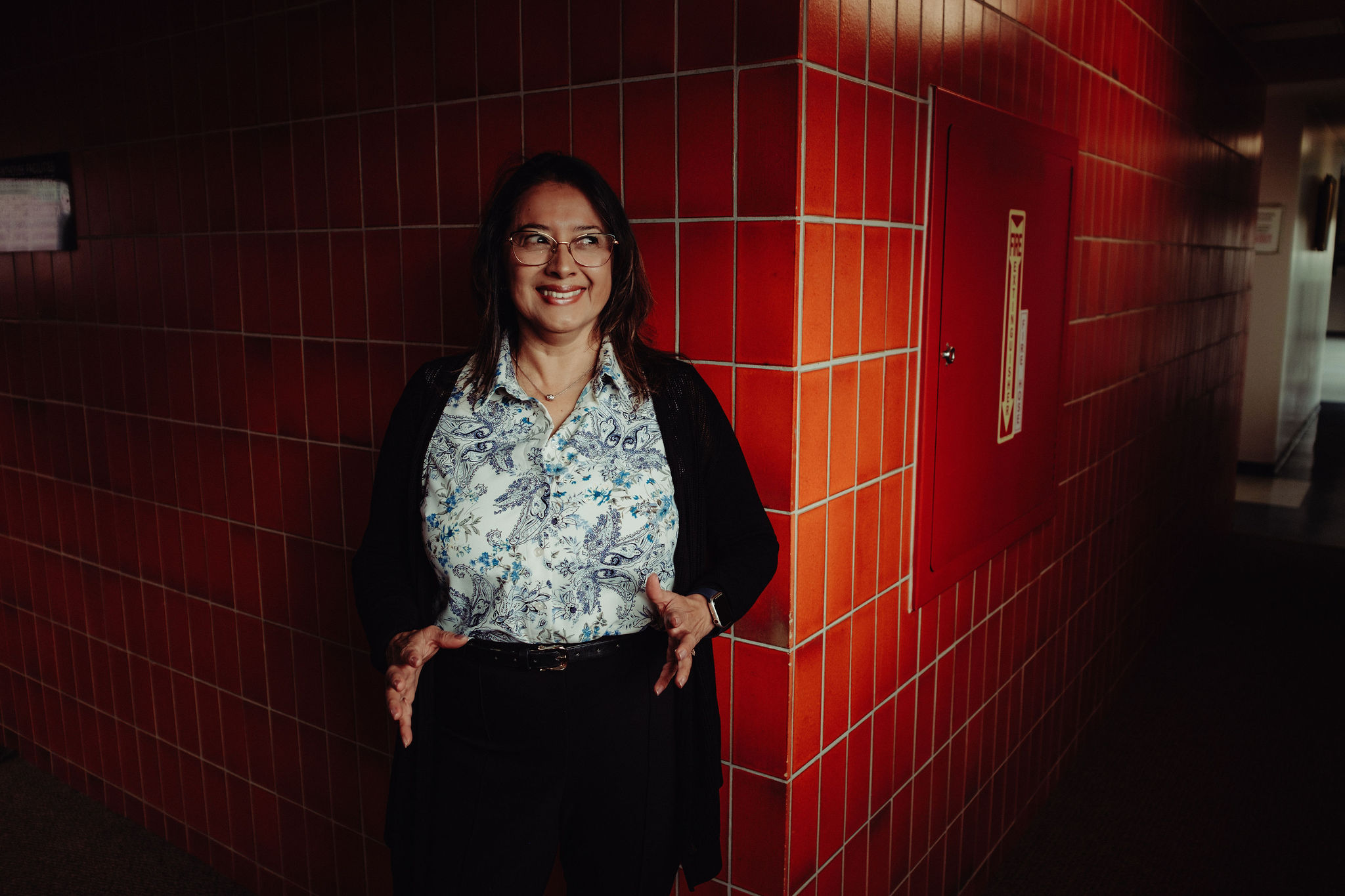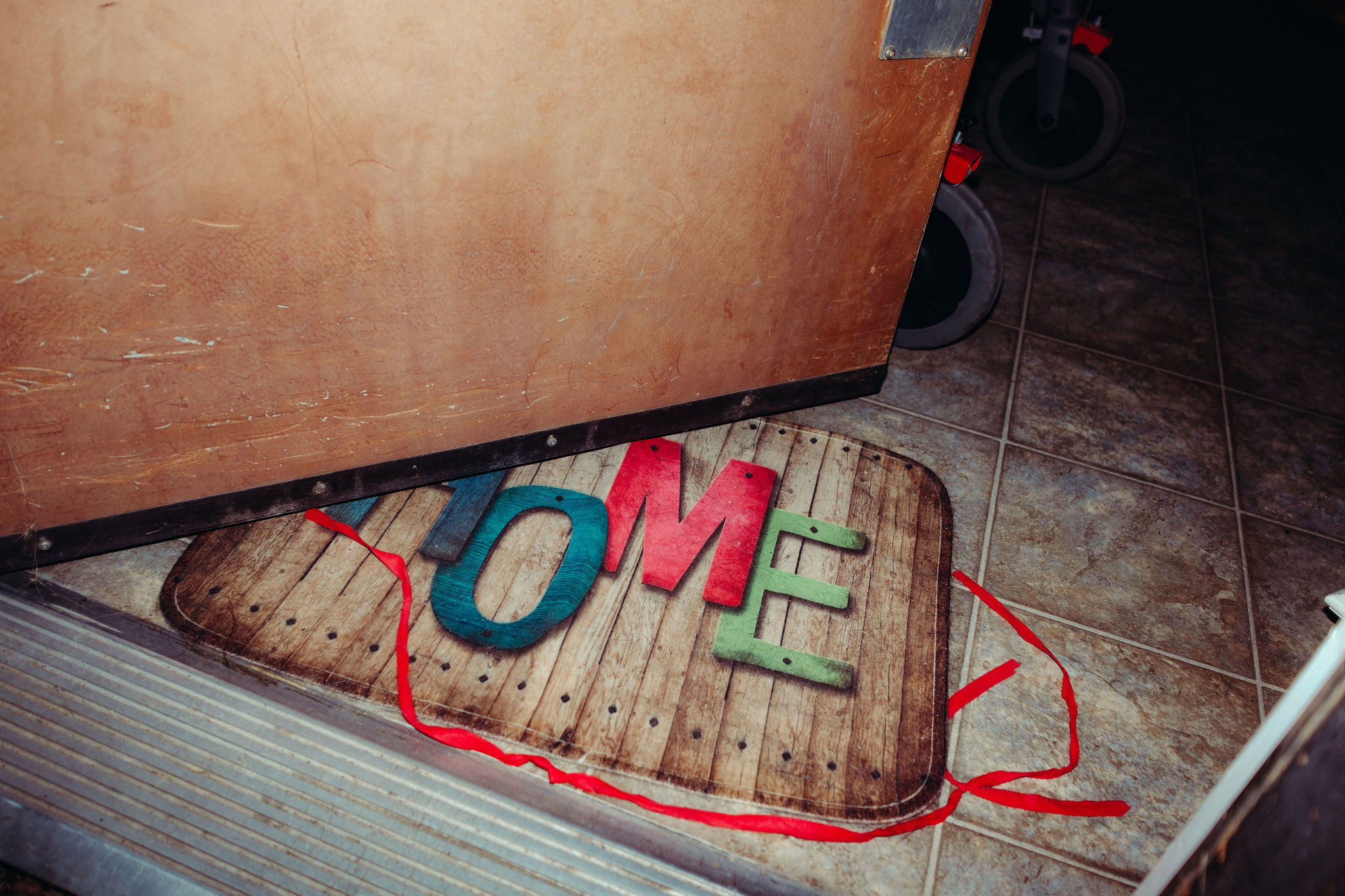This is one of 12 interviews conducted with various Edmontonians about their experience with the housing system. It has been edited for clarity and length. Read more about why and how Taproot embarked on this series.
Cecilia Romero is the client services program manager for Operation Friendship Seniors Society, a non-profit society that provides community-based preventative social services to the seniors of Edmonton's inner city, operating more than 310 affordable housing units for Edmontonians over the age of 55. Romero is a registered social worker who has worked as a volunteer, a job centre worker, an outreach worker, and a manager since immigrating to Edmonton in 2010.
Can you tell us what role you play in the housing ecosystem now?
As a manager at a non-profit organization, I coordinate the direct services department, hiring, posting positions, reporting, and anything that is needed, but I'm still in touch with the seniors. It's sad because the people that I worked with when I was in outreach, many of them are already passing. It's hard because for a big number of our seniors, we are the only constant personal people in their lives.
You came to Edmonton from El Salvador. What was that like?
When you hear about First World countries, you do not imagine that there is poverty and homelessness and a bunch of other mental health issues, and so I wasn't able to process what I was seeing. I think you always know there is going to be poor people everywhere, but not this level. All First World countries project being the best of the best, so I couldn't understand how people here didn't see the poverty, or could see it, but that it didn't bother them.
Did you work in the social services in El Salvador?
I worked as a nurse in a geriatric program, so I used to work with seniors. I was working with Red Cross at that time, and we had the blood donation program. After that, I went to school, so I got my bachelor's, and I was working with families and mostly adults.
Did you start working with homelessness when you first arrived in Edmonton?
When I moved to Canada, I started here as a volunteer, and it was interesting to jump into an opportunity that put me face-to-face with individuals facing homelessness, mental health, and other issues. I worked in the drop-in centre, and then in outreach. We were meeting people, visiting them, going to the hospital, or jail visits, or just walking around to find people in need in the community. We would fill out forms for them, anything that helped them to have the financial piece in order. We would do advocacy for them with the health system, or financial system, any kind of advocacy that was needed. Of course, everything that was out of our scope, we referred or connected the individual with the appropriate source to be helped. For the seniors that were kind of isolated, we would visit them, or go for coffee. Then of course we were always working closely with the organizations around the inner city, looking for other resources to help our clients.

A seating area for residents at Pioneer Place. (Jordon Hon)
Can you share any stories of success?
I think this one always sticks to my mind. They were a couple, and the very first time they were in my office he was swearing and yelling at me, and I kind of got that, you know? They'd been through a lot, and so the trauma was there, the stigma. I said, "Well, I don't know you, you don't know me. This is the first time we are meeting each other. So I'm here to help you and we can work together to see what you need to have done. I don't know what you've been going through, and what people let you down, or what they did to you, but we need to start fresh from here." So it was hard, they both had no income, they had health issues, they were experiencing homelessness for so long. It was one of those cases that I can see how easy they can lose it on me, because they're sick and tired of just going around and nothing is being done.
It took almost a year because they had no identification, they didn't recall dates they needed to know for Service Canada, so the frustration was real, and it was hard because we are the ones that are in between. We are what I call the bridge between the individual and the sources, but we are the only face they see, so sometimes you need a face to yell at. So, we did a lot of work and put all the finances in place for them. Then they got housed and my goodness, it's one of those very rewarding moments for the average worker. You see all the effort,and it's not just the worker's effort, it's the time your client, that individual puts into it to make things happen. So yeah, we had a lot of bumps on the road, but they ended up having a different quality of life. I mean, it was wonderful – from the first day to the last day we interacted, it was completely different kind of relationship. They trusted me, they knew they could rely on me.
Now I share this story with my colleagues, and I say, "What if I had given up on them that first day?"
How do you think the average citizen can understand the homeless situation better?
It's important for people to volunteer somehow in the inner city, so that you really can see the true face of people experiencing all these social issues. Of course, the first day, you're going to be afraid, but after that, you get to know them and then you know that they are individuals with issues the same as everybody else.
This interview was conducted on March 7, 2024.


